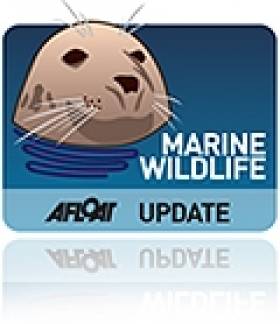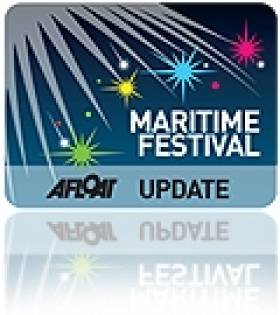Displaying items by tag: Galway Sea Festival
'Beach Safari' At Salthill Ahead Of Galway Sea Festival
#MarineWildlife - Young and old alike are invited to join a 'beach safari' from the lifeguard hut Grattan Beach in Salthill at 11.30am on Sunday 26 May, ahead of the first Galway Sea Festival.
Marine wildlife experts such as Amy Lusher of GMIT's Marine and Freshwater Research Centre and Dr Nóirín Burke of the Galway Atlantaquaria will be on hand to provide insights into an often ignored world of plants and animals, as the Galway Independent reports.
“The shore can sometimes appear to be devoid of wildlife, but when you start to look closely, there is a wonderful amount of activity going on - in the sand, under the rocks and in the rock pools," said Dr Burke.
“Grattan Beach is such an amazing resource to have on our doorstep here in Galway. Just a few hundred metres from the footpath where people walk and jog you can enter a habitat where life is completely different from our own."
A further chance to discover more about this secret world of the marine habitat will be available at the Galway Atlantaquaria's 'Family Funday' on 2 June in conjunction with the city's Galway Sea Festival celebrations.
As previously reported on Afloat.ie, "tens of thousands" of visitors are expected to flock to the City of the Tribes for the first Galway Sea Festival from 31 May till 3 June over the June bank holiday weekend.
Galway Expects Crowds For First Sea Festival
#Festivals - "Tens of thousands" of visitors are expected to flock to the City of the Tribes later this month for the first Galway Sea Festival over the June bank holiday weekend, according to the Galway Advertiser.
Dubbed the 'Mini-Volvo' by locals, the four-day event from 31 May till 3 June is hoped to recreate the celebratory atmosphere of last summer's successful Volvo Ocean Race finale, with a wide range of events both on and off the waters of Galway Bay.
Highlights include the festival regatta led by the Galway Bay Sailing Club's parades of sail on the Friday and Saturday evenings, and a traditional boat regatta by Badoiri na Cladaigh.
Watersports enthusiasts can get a taste of canoeing, diving, sea kayaking and windsurfing over the weekend, which also coincides with World Oceans Day - with family-friendly activities at the Galway Atlantaquaria on Sunday 2 June - and the International Canoe Polo Championships at Claddagh Basin.
Preceding the festival on Thursday 30 May will be the Bright Blue Sea Conference, a major international symposium on marine science, renewable energy, the environment and the 'blue economy'.
Last month it was reported that the Galway Sea Festival received the financial backing of Galway City Council, spurred by its aims to promote Galway as a maritime destination or commerce and tourism.
The Galway Advertiser has much more on the festival HERE.






























































